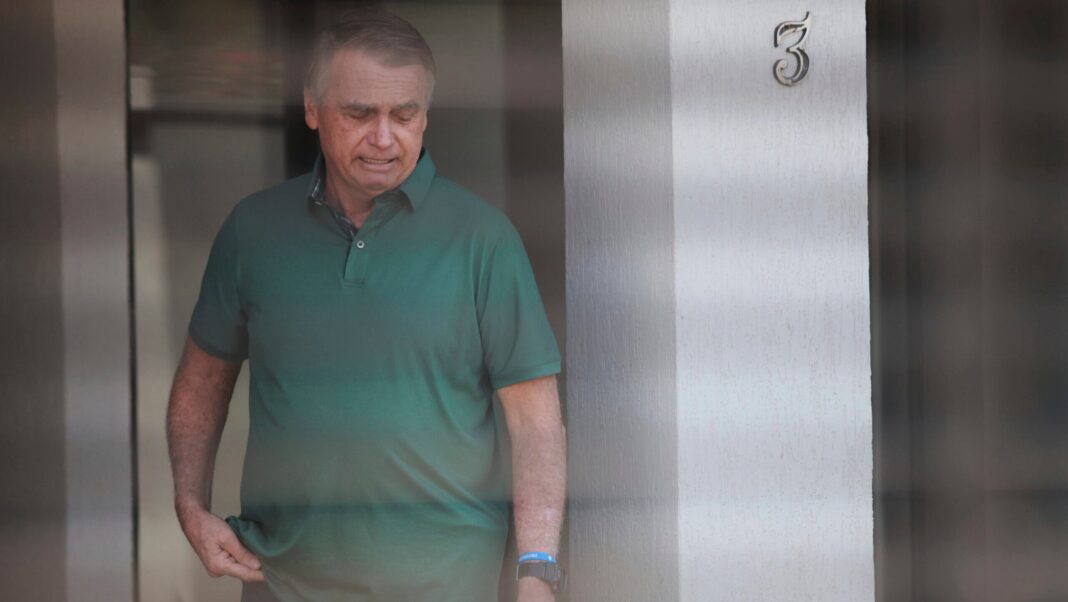Jair Bolsonaro Sentenced: A Historic Verdict in Brazil
A panel of Brazilian Supreme Court justices made headlines on Thursday when they sentenced former president Jair Bolsonaro to 27 years and three months in prison. This unprecedented decision followed a conviction for attempting a coup to cling to power after losing the 2022 election to President Luiz Inácio Lula da Silva. The case has not only captured national attention but also sparked intense political divisions within Brazil and beyond.
The Conviction Details
Four out of five justices found Bolsonaro guilty on multiple counts, a judgment that sent shockwaves across political circles. The specific charges are substantial:
- Attempting a coup after his electoral defeat.
- Participating in an armed criminal organization.
- Attempting violent abolition of the democratic rule of law.
- Damaging property qualified by violence.
- Deterioration of listed heritage.
Bolsonaro’s co-conspirators, including several high-ranking military officials, also received hefty sentences. For instance, his former defense minister, General Braga Netto, was sentenced to 26 years, while others received sentences ranging from 19 to 24 years.
Bolsonaro’s Response and Legal Options
Despite the ruling, Bolsonaro, who has consistently denied any wrongdoing, is currently under house arrest in Brasília and has stated plans to appeal the decision. His lawyers have a 60-day window to publish the ruling and an additional five days to file for clarification. Experts believe that while an appeal to the full Supreme Court is possible, it may not gain traction.
One Supreme Court justice, Cármen Lúcia, expressed her firm belief in the evidence presented, labeling Bolsonaro as the “instigator” behind the coup plot. In contrast, Justice Luis Fux dissented, arguing against the conviction by highlighting that not all isolated expressions of dissent should be equated with an organized coup.
Political Fallout and Division in Society
This landmark verdict has polarized Brazilian society, with supporters of Bolsonaro rallying in defense of their leader, claiming he is a victim of political persecution. Observers have noted that this may exacerbate existing divisions within the country, making it a flashpoint for civil unrest. Protests both for and against the decision have emerged, illustrating the contentious nature of Brazilian politics today.
International Repercussions
The verdict has not only captured national attention but also raised alarms internationally. The U.S. government promptly criticized the ruling, with former President Donald Trump expressing his disappointment. U.S. lawmakers have described the proceedings as a “witch hunt,” hinting at possible repercussions for Brazil’s diplomatic relations with the United States. Initial measures include a substantial 50% tariff on Brazilian imports, signaling a significant response from the Trump administration.
The Future of Brazil’s Political Landscape
Although Bolsonaro currently faces legal challenges, he remains a potent political figure in Brazil. In a separate case, he has been barred from running for office until 2030, but his influence persists, particularly among far-right factions. Observers suggest that his allies in Congress may pursue avenues for potential amnesty as political tides shift.
Experts note that the outcome of this trial holds potentially transformative implications for Brazil’s democracy. Political consultant Thomas Traumann aptly summarizes the moment, recognizing it as one of the most significant events for Brazilian democracy since the ratification of the 1988 constitution.
The Role of Bolsonaro’s Family
Bolsonaro’s family has also reacted strongly to the ruling. His eldest son, Senator Flávio Bolsonaro, labeled the conviction a “supreme persecution.” In social media posts, family members have rallied support, highlighting their father’s alleged innocence and love for Brazil.
Implications for Brazilian Democracy
Many view this ruling as a landmark moment in Brazilian political history, marking the first time that a former president and several military officials have faced accountability for attempting to undermine an elected government. The ramifications of this verdict may extend to future generations, setting a precedent for how political dissent and attempts to subvert democracy are treated in Brazil.
The evolving political landscape, coupled with discussions of appeals and potential amnesty, signal that Bolsonaro’s story is far from over. As Brazil navigates this politically charged atmosphere, the outcome of this ruling may reverberate through the corridors of power for years to come.



